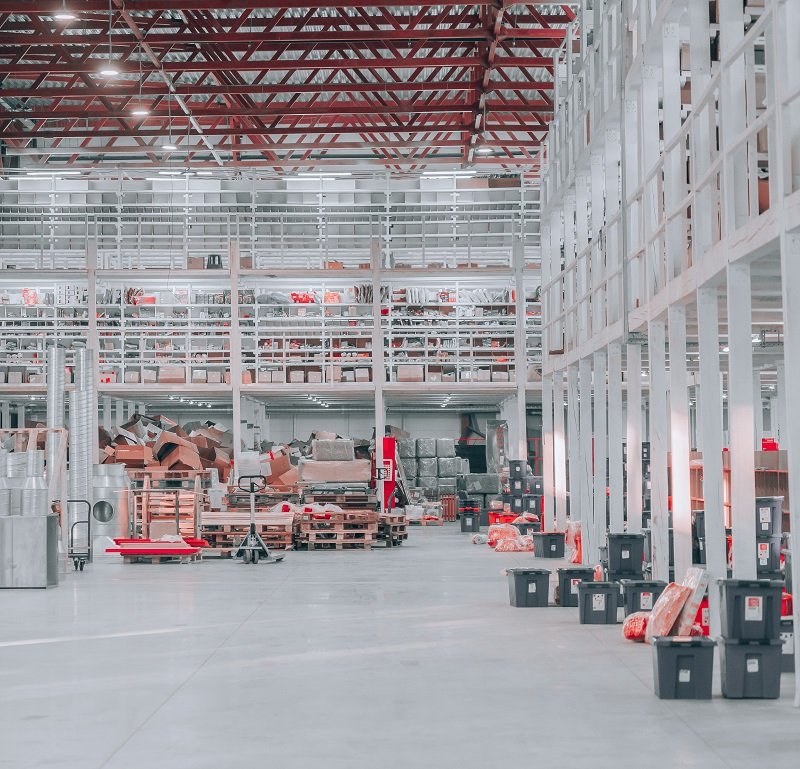Have you ever questioned why your air conditionerís vents exist and how they contribute towards efficiently cooling a space? Most people donít give it much thought Ė they just assume the unit will always work when needed. However, understanding...
However, understanding the various components of your air conditioner, including the vents, can enhance its performance and efficiency. This, in turn, can lead to a cooler home and reduced energy expenses.
Key Takeaways
?†Air conditioner vents provide an efficient method of dispersing clean, purified air throughout your home or office.
?†A clean air vent can significantly impact the air flow of your home.
?†Properly functioning air vents play a crucial role in regulating the humidity level in your space.
?†Common causes of poor air flow in air conditioner units are a clogged filter, too much debris on the outside condenser unit, a malfunctioning thermostat, and leaking ducts.
What is an Air Conditioner Vent?
An air conditioner vent, also known as an air duct or register, plays a vital role in your air conditioning system. It serves as the conduit for distributing chilled air from your air conditioner throughout your home or office. In essence, it acts as the delivery system for the refreshing coolness that an air conditioner offer
Air conditioner vents are typically located on each roomís walls, floors, or ceilings. You might have noticed them: rectangular grilles with slats. These grilles can often be adjusted to direct airflow in a specific direction, allowing you to control where and how cool air circulates within a particular space.
What Is the Difference Between Air Ducts and Air Vents?
It is important to note that there is a distinction between ďair ductsĒ and ďair ventsĒ despite the interchangeable use of these terms. Knowing this difference is important in understanding the functionality of your air conditioning system and keeping it adequately maintained.
Air Ducts
Air ducts are a vital component of your air conditioning system. They are the hidden labyrinth that transports cooled air from your air conditioner unit throughout your home or building. These long tubes, typically crafted from durable metals like aluminum or galvanized steel, are ingeniously concealed within your structureís walls, ceilings, or floors.

This network of ducts spans the entirety of your building, ensuring that every room can be reached by the cooling comfort provided by your air conditioner.
Air ducts ensure constant and efficient airflow in your home or office. They distribute the cool air your air conditioning unit generates to every part of the space, ensuring a balanced indoor temperature. By understanding the significance of air ducts, users can appreciate the importance of properly maintaining their air conditioning systems.
Air Vents
Air vents are the gateways for air to enter and exit your homeís HVAC system. You can easily spot these grilles on your roomsí walls, floors, or ceilings. They play a crucial role in facilitating cool air flow into your living or working spaces.

Air vents are designed to evenly distribute the cooled air from the air ducts throughout your room. Their strategic placement allows for optimal circulation and maintains a uniform temperature across your space.
Apart from pushing cooled air into your room, air vents also draw warm air from your room back into the air ducts. This warm air is then transported back to the air conditioner, which is cooled again, maintaining an efficient air conditioning cycle.
Benefits of a Properly Functioning Air Vent
A well-functioning air vent in your air conditioning system can significantly impact your comfort, health, and energy savings. Here are some of the key benefits you stand to gain:
Maintain Air Pressure
Your air vents greatly influence the air pressure in your home or office. When they function optimally, air vents maintain balanced air pressure in your space.

This balance is crucial as it prevents issues like drafts and ensures that your HVAC system operates efficiently. Without proper ventilation, you might experience uneven heating or cooling in different parts of your building, leading to discomfort for occupants.
Improve Performance and Reduce Energy Consumption
A well-functioning air vent is crucial for optimizing the efficiency of your air conditioning system. It facilitates the seamless circulation of air, minimizing the strain on your air conditioner and preventing unnecessary exertion.
This enhanced performance directly translates to reduced energy usage, resulting in substantial savings on your utility bills. Taking care of your air vents not only improves your indoor comfort but also helps you save money.
Better Air Quality
Maintaining optimal indoor air quality†heavily relies on the quality of your air vents. These essential components ensure adequate airflow throughout areas of the home, which plays a pivotal role in expelling harmful pollutants while simultaneously dispersing fresh, purified airstreams evenly.
By efficiently cycling out stagnant or polluted air emissions with cleaner air, your vents help lower the concentrations of allergens and irritants within your home or office.
Less Humidity
Properly functioning air vents play a crucial role in regulating the humidity level in your space. Especially in hot and humid climates, the air conditioning system extracts moisture from the air while cooling it.
The air vents then push out this moisture-filled air from the building, ensuring a comfortable and healthy humidity level. This makes your surroundings more pleasant and prevents mold and mildew growth, which flourish in moist environments.
Diagnosing a Faulty Air Conditioning Vent
Properly functioning air conditioning vents are essential for a comfortable environment in your home or office. However, there are instances when these vents may not work as efficiently as expected.
Clogged Air Filters
A dirty air filter can cause your air conditioner to not work properly. Dust and dirt can build up on the filter over time and block the airflow from the air conditioner to the vents. If you notice less airflow or your HVAC system is working harder than usual, itís a good idea to check the air filters. Replacing dirty or clogged filters often improves system performance.

Accumulation of Debris in the Outdoor Unit
Your outdoor unit plays an essential role in your air conditioning system. However, itís also exposed to the elements and may collect debris such as leaves, grass, and dirt.
This accumulation can hinder the unitís performance and reduce the airflow to your vents. Regularly inspect your outdoor unit and clear away any debris to ensure it can operate efficiently.
Malfunctioning Thermostat
Your thermostat directly controls your HVAC systemís performance. In the event of any malfunctioning, it can potentially disrupt the functioning of your air vents. If you notice that your vents are not maintaining the desired temperature or if your system is switching on and off more frequently than usual, it is advisable to review your thermostat settings.
In the event that adjusting the settings does not resolve the issue, it is recommended to seek professional assistance to accurately diagnose and rectify the problem.
Leaks in Ducts
Air ducts transport cooled air from your air conditioner to your vents. However, if there are leaks in the ductwork, some of this air can escape before reaching your rooms. This can result in reduced cooling efficiency and uneven temperatures across your building.
If you suspect this might be the issue, a professional HVAC technician†can perform pressure tests to detect and locate any leaks.
Insufficient Insulation
Insufficient insulation around your ductwork can lead to cool air loss before it reaches your vents. This can make your air conditioner work harder to cool your space, leading to higher energy bills and reduced comfort.

Check the insulation if your ductwork runs through unconditioned spaces like attics or basements. Adding or replacing insulation can significantly improve your systemís efficiency if itís damaged or inadequate.
Make Sure Your Air Vents Are Functioning Properly
Maintaining the functioning of your air vents and keeping them in top condition is essential. Regular inspection and maintenance can help you identify any problems that might be limiting their performance, enabling proper repairs and ensuring optimal efficiency from your HVAC system.
It is important to seek assistance from a skilled and knowledgeable HVAC technician to inspect or repair your air vents. Scottsdale Air has a long-standing history since 1947 of providing top-notch heating and cooling services and exceptional customer service. Contact Scottsdale Air†now to guarantee the optimal performance of your air conditioner unit for years to come.











